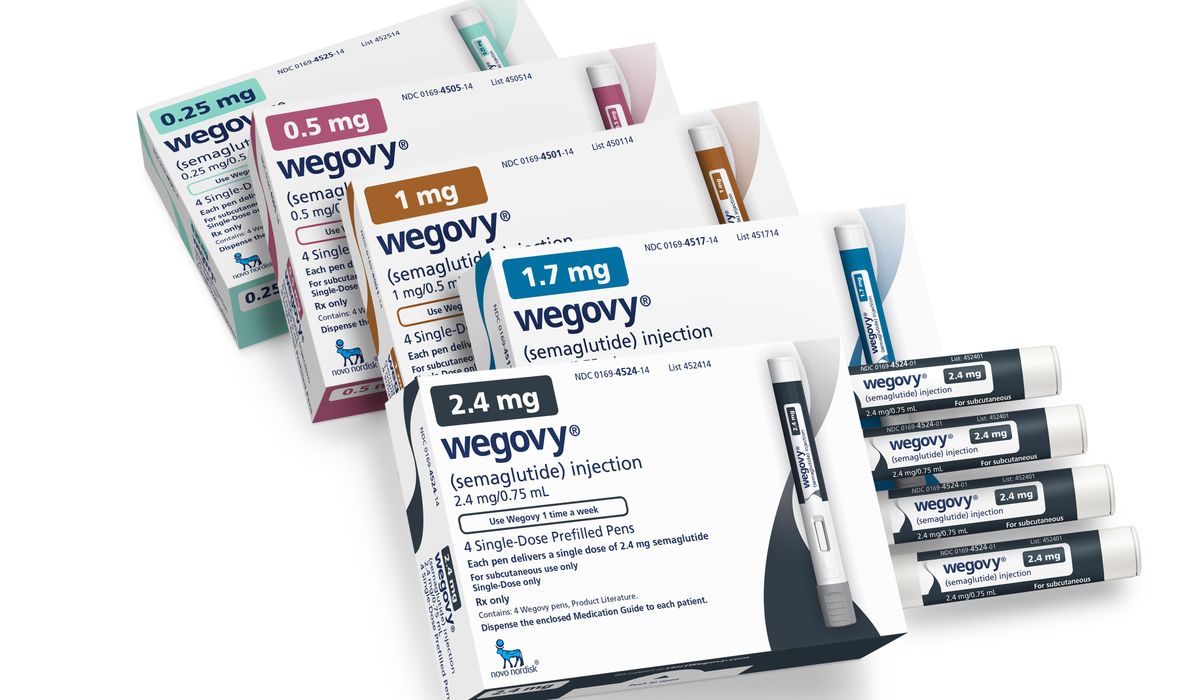Study Finds Wegovy Drug Reduces Risk of Serious Heart Problems by 20% in Obese Patients
November 11, 2023 | by Kaju

A recent study has revealed that the weight-loss medication Wegovy has been effective in reducing the risk of serious heart problems by 20%, giving hope to obese patients and potentially altering treatment practices for certain heart conditions.
It is the first study to demonstrate that an obesity drug can not only help individuals shed excess pounds but also offer protection against heart attack, stroke, or heart-related death in individuals with heart disease but without diabetes.
These findings could change the perception of obesity medications as purely cosmetic treatments and could have implications for health insurance coverage of these drugs.
Dr. Michael Lincoff, the lead author of the study and a heart expert at the Cleveland Clinic, stated, “It moves from a kind of therapy that reduces body weight to a therapy that reduces cardiovascular events.”
Wegovy, a high-dose version of the diabetes drug Ozempic, has already been shown to reduce the risk of serious heart problems in individuals with diabetes. This study aimed to determine if the same benefits would be observed in those without the disease.
For years, it has been known that losing weight can improve heart health, but until now, there has not been a safe and effective obesity medication proven to specifically reduce these risks. Dr. Francisco Lopez-Jimenez, a heart expert at the Mayo Clinic, believes that these new findings could lead to changes in treatment guidelines and dominate medical discussions for years to come.
He added, “This is the population who needs the medicine the most,” emphasizing the significance of this breakthrough for individuals in need.
According to experts, there are approximately 6.6 million people in the U.S. with similar characteristics to those involved in the study.
The results of the study were published in the New England Journal of Medicine and presented at a medical conference in Philadelphia. Novo Nordisk, the maker of Wegovy and Ozempic, has requested the U.S. Food and Drug Administration to include the heart benefits of Wegovy on its label, similar to Ozempic’s.
The study, funded by the company, involved over 17,500 individuals from 41 countries. Participants, aged 45 and above, with a body mass index of 27 or higher, were tracked for an average of more than three years. In addition to their standard heart condition medications, they were randomly assigned to receive weekly injections of Wegovy or a placebo.
The study found a 20% reduction in the risk of heart attack, stroke, or heart-related death among those who received the drug, compared to those who received the placebo. However, it is important to note that the number of serious health complications reported was too small to conclusively determine whether the individual outcomes were caused by the drug or by chance.
Participants who received Wegovy lost approximately 9% of their weight, while the placebo group lost less than 1%.
The Wegovy group also exhibited improvements in key markers of heart disease, including inflammation, cholesterol, blood sugars, blood pressure, and waist circumference, which started early in the study, before significant weight loss occurred.
Dr. Martha Gulati, a heart expert at Cedars-Sinai Medical Center in Los Angeles, emphasized, “It means to me that it’s more than just weight loss, how this drug works,” highlighting the multifaceted impact of Wegovy.
However, an editorial accompanying the study cautioned that it is still unclear how much of the results were due to weight loss or the drug itself.
Approximately a third of the study participants reported serious side effects, with notable rates of nausea, vomiting, diarrhea, and other stomach-related problems leading some individuals to discontinue their participation in the study.
Dr. Gulati and others stressed the need for future research to include more diverse demographics, including women and individuals from different racial and ethnic backgrounds.
Wegovy is part of a new class of injectable medications for obesity. Recently, Eli Lilly’s Zepbound, a version of the diabetes drug Mounjaro, was approved by the U.S. Food and Drug Administration for weight control.
Both medications come with high price tags, and access to them is often limited by insurance coverage and availability. Efforts are being made to advocate for broader coverage, including potential legislation to mandate Medicare coverage for these drugs.
Results from this study and others showcasing the direct impact of obesity medications on significant health complications could influence the debate on insurance coverage for these treatments, potentially leading to broader accessibility for patients in need.
This approach may have relevancy in influencing future healthcare policies and coverage decisions, aiming to improve access to effective obesity treatments.
RELATED POSTS
View all


